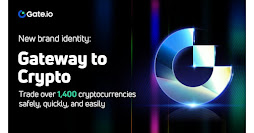What is a blockchain oracle?
A blockchain oracle is a third-party service or software that provides external data to a blockchain network. Oracles enable blockchain networks to interact with data and events that are outside of their own network, such as real-world events, off-chain data, or data from other blockchain networks.
Oracles act as bridges between the blockchain and the outside world, enabling smart contracts and other applications to access real-time data and execute actions based on that data. They can provide data in different formats, such as APIs, web scrapers, or other types of data feeds.
Smart contracts use oracles to verify if certain conditions have been met before executing an action. For example, a smart contract might be programmed to execute a payment to a supplier once a shipment has arrived at its destination. The oracle would provide real-time data about the shipment's location, which the smart contract would use to verify whether the condition has been met before executing the payment.
Oracles play a critical role in enabling blockchain networks to interact with the real world, and they are becoming increasingly important as blockchain technology expands into new applications and industries. However, oracles also introduce some challenges around security, reliability, and transparency, as they rely on centralized sources of data that can be subject to manipulation or errors.
Overall, blockchain oracles provide a powerful tool for enabling blockchain networks to interact with the real world, unlocking new opportunities for use cases such as supply chain management, insurance, and finance.
Oracles act as bridges between the blockchain and the outside world, enabling smart contracts and other applications to access real-time data and execute actions based on that data. They can provide data in different formats, such as APIs, web scrapers, or other types of data feeds.
Smart contracts use oracles to verify if certain conditions have been met before executing an action. For example, a smart contract might be programmed to execute a payment to a supplier once a shipment has arrived at its destination. The oracle would provide real-time data about the shipment's location, which the smart contract would use to verify whether the condition has been met before executing the payment.
Oracles play a critical role in enabling blockchain networks to interact with the real world, and they are becoming increasingly important as blockchain technology expands into new applications and industries. However, oracles also introduce some challenges around security, reliability, and transparency, as they rely on centralized sources of data that can be subject to manipulation or errors.
Overall, blockchain oracles provide a powerful tool for enabling blockchain networks to interact with the real world, unlocking new opportunities for use cases such as supply chain management, insurance, and finance.

Comments
Post a Comment